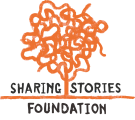Country
Language, knowledge, song, spirit, ceremonial practice and Country are inseparable for Indigenous Australians. Through these resources we will explore some of the experiences and perspectives of Indigenous Australians in relation to Country.Murray Butcher, a Paakantji man who lives in Wilcannia, NSW and is an important holder of language and culture explains the fundamental connection between Paakantji people and their Country.
Paakantji means ‘belonging to paaka, the river’; we are the people that belong to the Darling River. We don’t own the land, this land owns us—our river is our soul. It’s where our ancestors grew up.
Liyadhalinymirr Elder Yiiya Guyula who is on the board of SharingStories Foundation explains why he and many other senior members of his community believe it is so important to take people back onto Country in order to teach them the songs and stories.
We must take our children back to the land, back to the country, sing for them, teach them about language, about culture, ceremonies, what happened, actually standing on the land and actually holding onto the stringy bark tree, the gadayka (stringy bark tree) and telling them this is the holy gunduy (sacred knowledge), this is the holy sacred tree that our spirit comes from. Straight away those people can understand because behind that tree behind the rock, there are spirits of our fathers telling the story, the rock itself can speak, the tree itself can speak… listening to the wind blowing cleansing and empowering, in it’s own language… it teaches, it gives knowledge to our young people, knowledge to our people.
Holding of culture is not only important for the people to whom the culture belongs but also for the Country to which those songs, stories and ceremonies are inextricably bound. The maintenance of these knowledge systems feed Country and ensures its regeneration.
When you go back to Country, to waterhole, to jila, you know there is a certain ceremony, things that you have to do, rituals and ceremonies to recognise that Country so you can be one. You could have beings there that you have to make happy and then that way that Country will look after you, that Country will embrace you, and say you’re welcome here, you’re welcome to camp here. By doing the right thing, by recognising Country, the songline, the story line, how all are connected, you become one.
William Watson, Jarlmadangah Community.
The re-enactment of the creation ancestors travels through the songs, stories and ceremonies they left behind reconnects people with the ‘beginning’, when all came into being. The re-embodiment of this process, as occurs through ceremony, ensures the regeneration and revitalization of the Country to which those songs, stories and ceremonies belong. As Neil Turner, the manger of the Pilbara and Kimberley Aboriginal Media suggested when he was speaking about trips to Country that took place as part of the Ernabella Video Project, “these recording trips have provided the motivation and the means to travel the traditional storylines as of old and to perform the Inma (ceremony) at each site, which in itself restores the potency of the Tjukurrpa embodied there”. Different Indigenous communities have their own word for the Tjukurrpa, it refers to the creation period when ancestral beings travelled, creating Country, Law, ceremony, language and all things.
